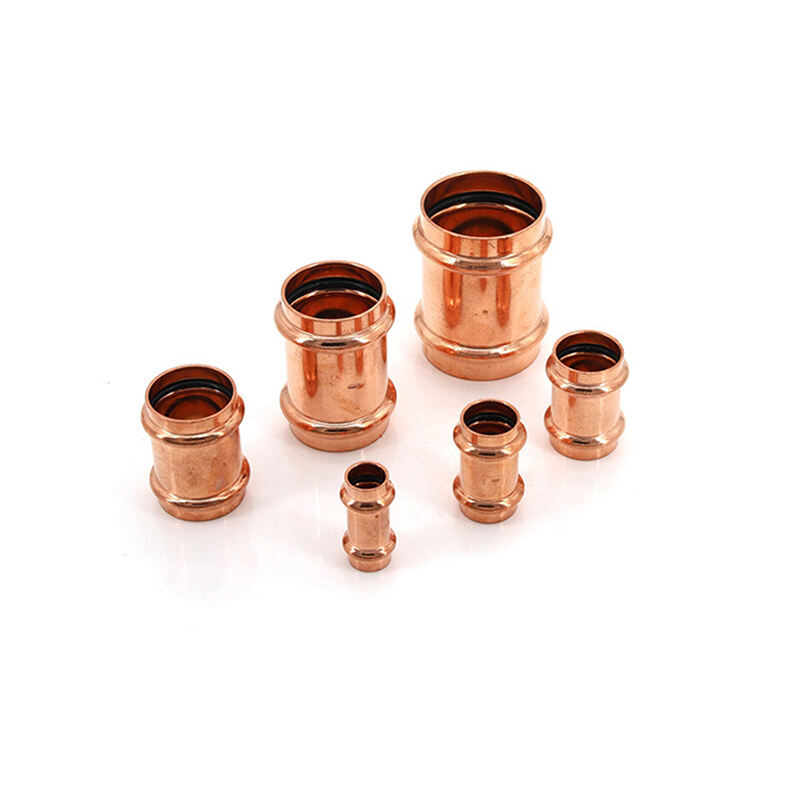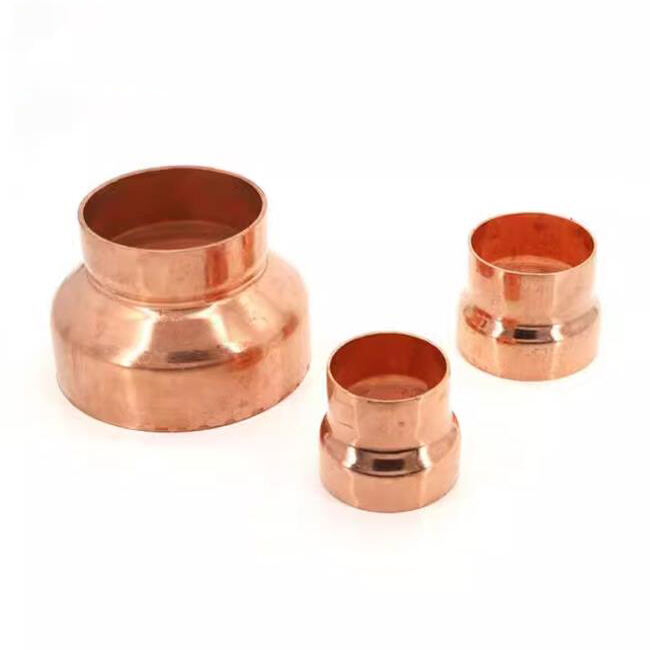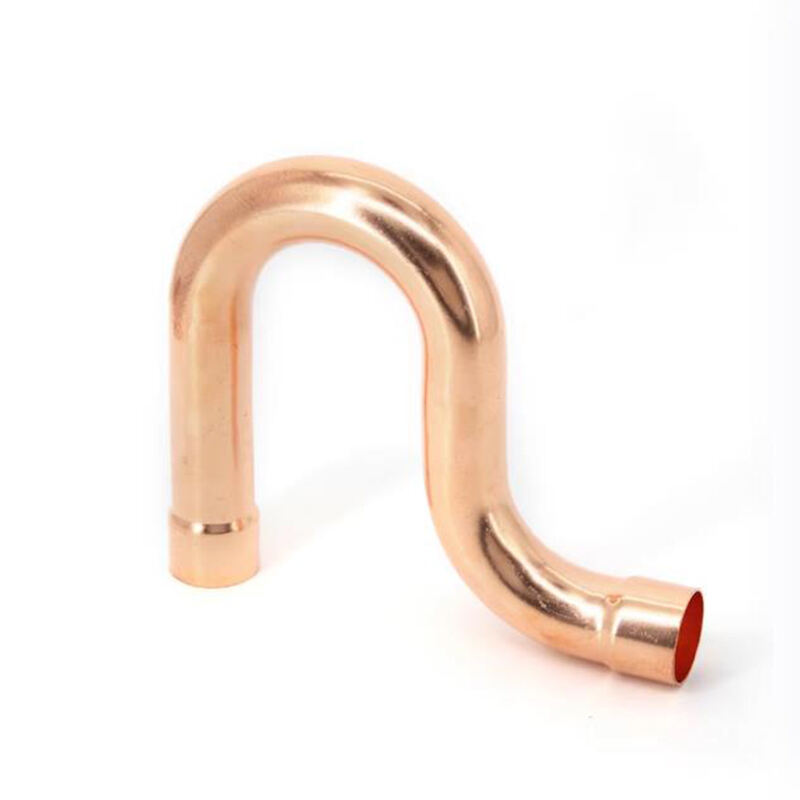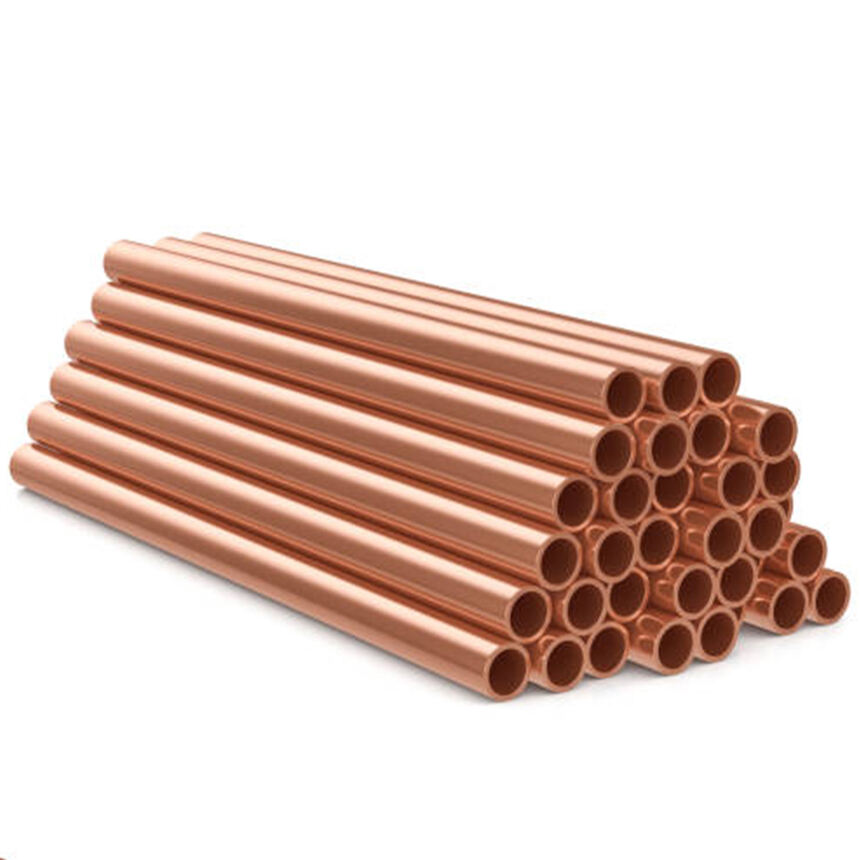Advantages of Copper Pipe Fittings in Modern Pipeline Systems
Corrosion Resistance for Long-Term Durability
Copper pipe fittings stand out because they resist corrosion really well, which makes them one of the best options when looking for something that lasts in plumbing work. Most other materials just don't hold up as good against all sorts of environmental factors that damage pipes over time. Research shows these copper fittings often keep working properly for more than half a century in homes, cutting down on how much money gets spent replacing or fixing things later on. Copper holds up against those pesky corrosive elements commonly found in water supplies and surrounding environments too. For anyone wanting something that works well right away but also sticks around for decades without issues, copper remains a solid bet for most plumbing needs.
Superior Thermal Conductivity & Efficiency
The way copper conducts heat makes it really stand out in plumbing applications. It transfers heat much better than other materials, which means hot water systems work more effectively. Studies show copper conducts heat about 400 times better than plastic fittings, so water heats up quicker and uses less energy overall. This kind of efficiency helps keep water at the right temperature when needed, saving money on energy bills while making sure pipelines function properly. For this reason, many plumbers choose copper fittings not just because they save energy costs, but because they help maintain dependable water delivery across all sorts of buildings and homes.
Types of Durable Copper Pipe Fittings for Various Applications
Solder Fittings vs. Compression Connections
Solder fittings and compression connections have their own strengths based on what the job demands. Solder fittings make really solid joints that don't leak, which is why they work so well in high pressure systems. These connections form a lasting bond that holds up even when temperatures change throughout the day. Compression connections tell a different story though. They let plumbers install things quickly and take them apart later if needed, all without special tools or advanced skills. Most plumbers will pick one option over the other based on actual conditions at the site. If there's going to be constant pressure changes or long term stability matters most, solder makes sense. But for temporary setups or places where adjustments might happen down the road, compression fittings save time and headaches in the long run. Always check what kind of access will be available during maintenance too before making a final decision.
Press-Fit Technology for Industrial Plumbing
Industrial plumbers have increasingly turned to press fit technology because it creates strong, watertight connections without needing any heat. The process involves special tools that actually compress the fittings against the pipe walls, forming a solid bond that cuts down on installation time quite dramatically some reports say around 40% quicker than old fashioned soldering methods. For big construction jobs or plant overhauls where every hour counts, this kind of time savings really matters. What makes press fits stand out in factories and manufacturing plants isn't just speed though. These connections hold up well under pressure, which means fewer leaks and less expensive equipment shutdowns when something goes wrong. Many chemical processing facilities and food production lines now rely heavily on press fit systems precisely because they last so long without failing, even in harsh environments where regular piping would deteriorate much faster.
Installation Methods for Long-Lasting Plumbing Systems
Best Practices for Soldering Copper Joints
Getting those copper joints soldered right is pretty much essential if we want our plumbing systems to last through all sorts of conditions. The whole process actually starts way before heating things up - cleaning those connection points thoroughly matters a lot because oxidation just ruins everything. Most plumbers know this from experience, but newcomers often skip this step thinking it doesn't really make much difference. Then there's the matter of picking the right flux for the job and keeping an eye on temperatures during soldering. Too hot or too cold and the solder won't flow correctly, which means weak spots down the line when pipes face pressure changes or temperature fluctuations. That's why regular hands-on training sessions help so much in the field. Plumbers who stick with established methods tend to see fewer problems over time. We've all seen what happens when shortcuts get taken - leaky faucets, burst pipes, expensive repairs nobody wants.
Press Tool Techniques for Leak-Proof Seals
Getting good at using press tools makes all the difference when it comes to making those watertight connections in today's plumbing systems. When plumbers get the technique right, they create seals that hold up under pressure and stop those annoying little leaks from happening. The size matters too big time really because mismatched fittings just won't seat properly no matter how hard someone presses them together. That's why professionals always check measurements before starting any job. Regular checks on press tools themselves are worth the effort too. A worn out tool can ruin even the best installation work. Keeping equipment in top shape saves money in the long run since systems last longer without needing repairs down the road. Most experienced plumbers know this stuff already, but for newcomers, understanding these basics helps avoid costly mistakes later on.
Copper vs. Brass: Choosing the Right Material
Why Copper Outperforms Brass in Corrosion Resistance
Copper stands out as having really good resistance to corrosion, largely thanks to those built-in antimicrobial qualities it possesses. These characteristics help protect against all sorts of damaging substances commonly found in water distribution networks across cities. Brass on the other hand, while tough enough for many applications, tends to suffer from something called dezincification. Basically, this means parts of the metal start dissolving away over time, especially noticeable in areas where the water contains lots of chloride ions. Studies conducted over decades consistently show copper piping maintains much better integrity than brass alternatives do under similar conditions. For engineers designing new plumbing systems or replacing old ones, these findings make copper look like the smarter choice whenever fighting corrosion matters most for long term reliability.
Applications Where Brass Fittings Excel
Copper gets all the attention for resisting corrosion, but brass fittings actually shine when looks matter more than strength, especially in places with gentle water pressure. Plumbers often reach for brass because it looks good on show and holds up pretty well structurally too. Works great in those low pressure areas where there's not much rust risk either. Still worth noting though, before installing brass anywhere, someone needs to check what kind of environment it'll face and make sure everything meets code requirements. When done right, brass pipes fit nicely into many home plumbing systems without causing headaches down the road.
Advantages of 99.9% Copper in Pipeline Systems
Pipeline systems often go with 99.9% copper because it stands up really well against corrosion and stays stable over time, which means safer operations and longer lasting infrastructure. The high purity level means there are just fewer impurities hanging around that might eventually weaken the pipes. According to stuff we've seen from groups like the Copper Development Association, these pure copper products don't corrode much even when faced with harsh weather or chemicals. We see this material working great in places where regular metals would fail fast, think chemical factories or ships out at sea battling saltwater all day long. Using this grade of copper isn't just about keeping things running smoothly; it actually helps meet those tough safety standards that regulators keep throwing at us these days.









